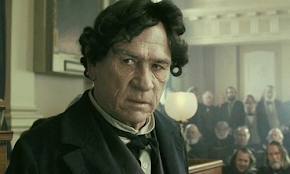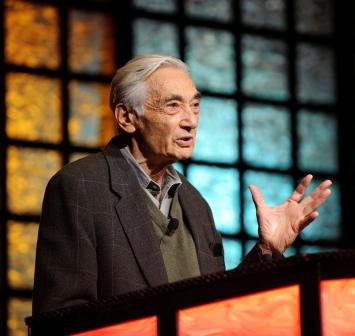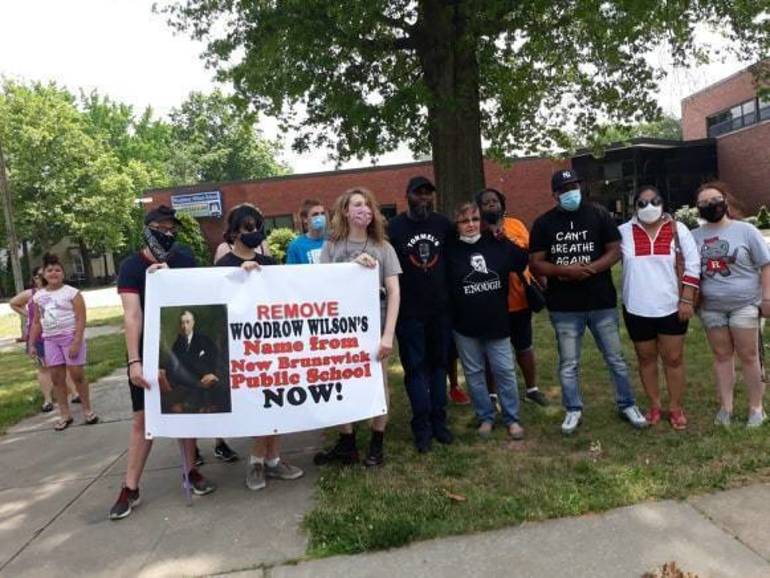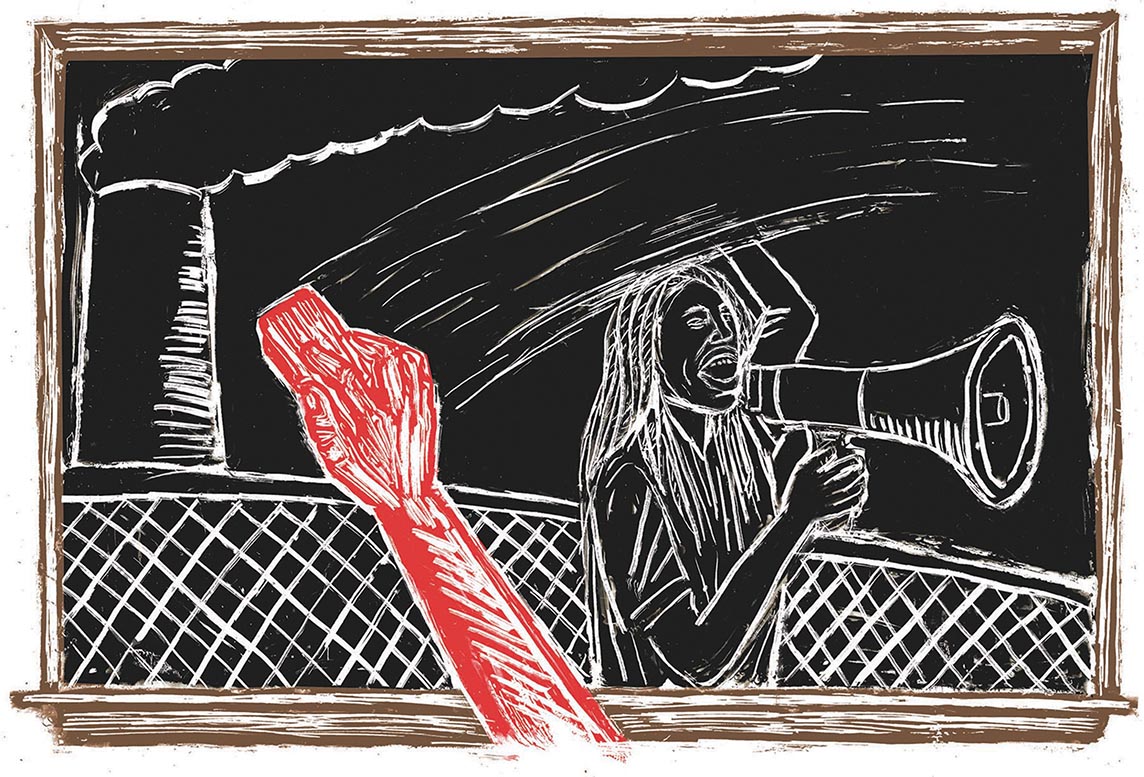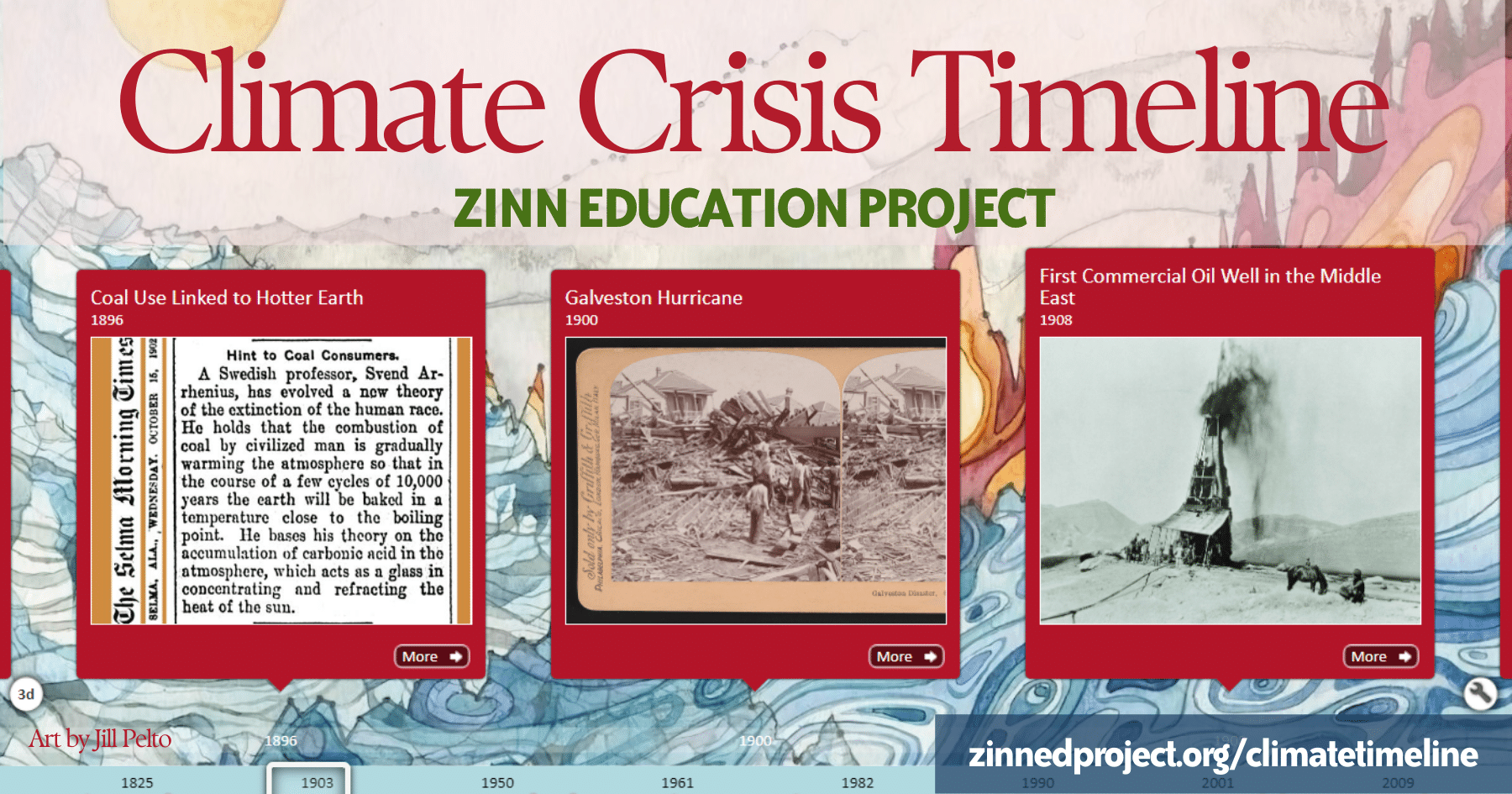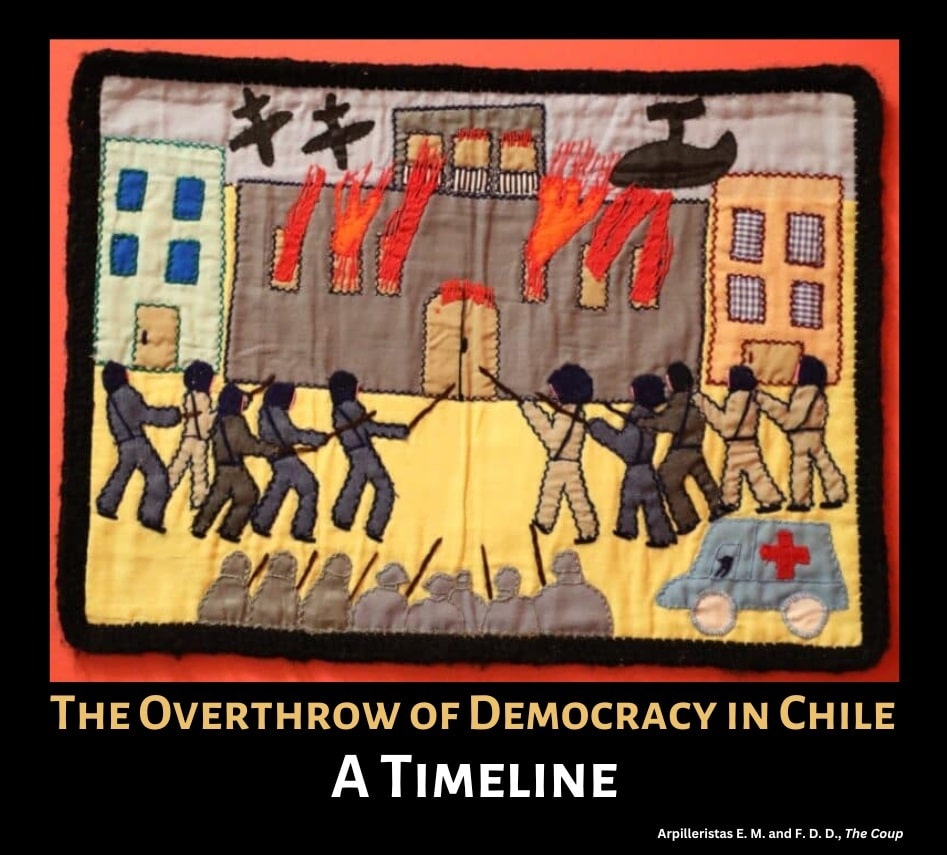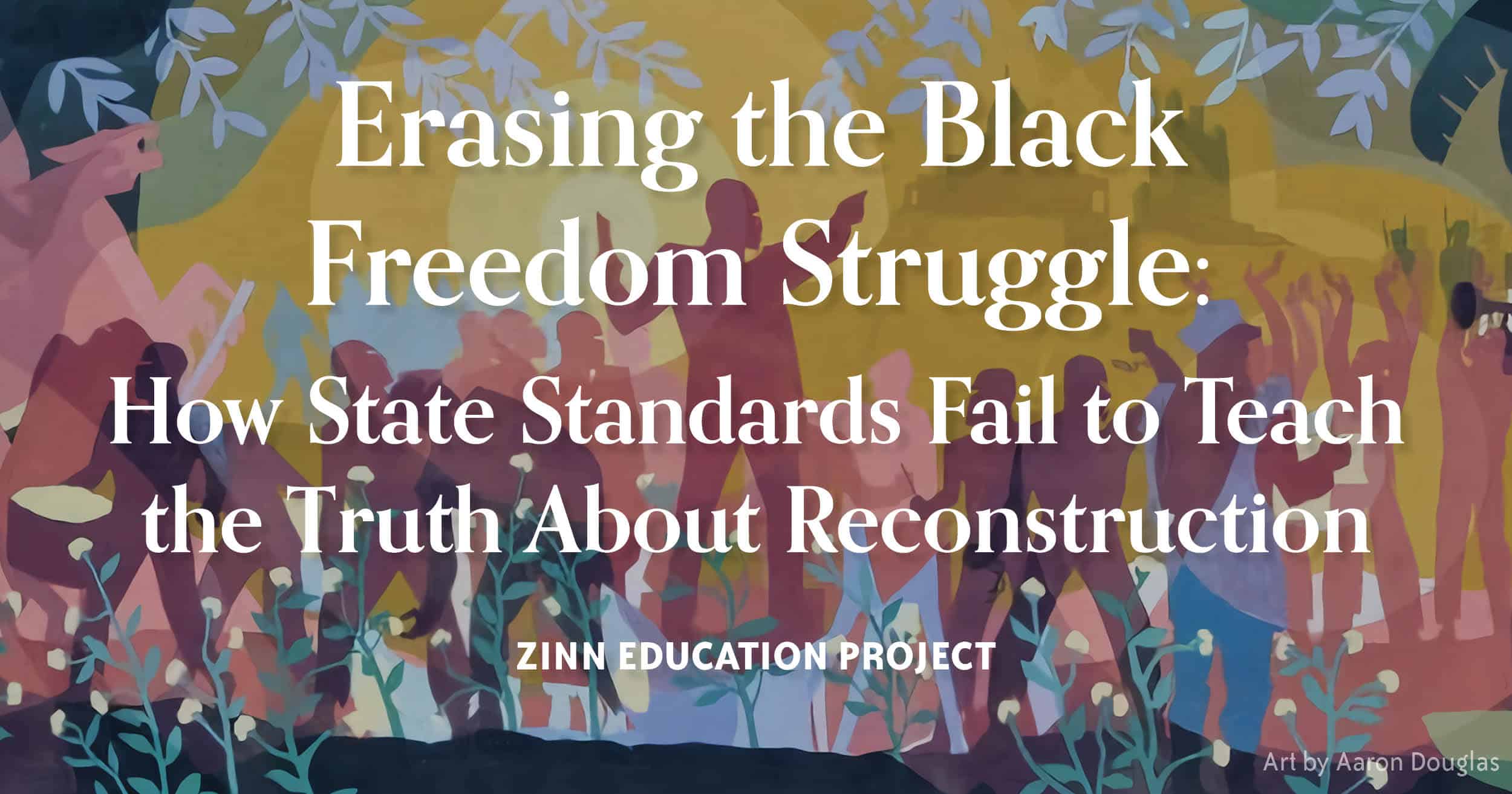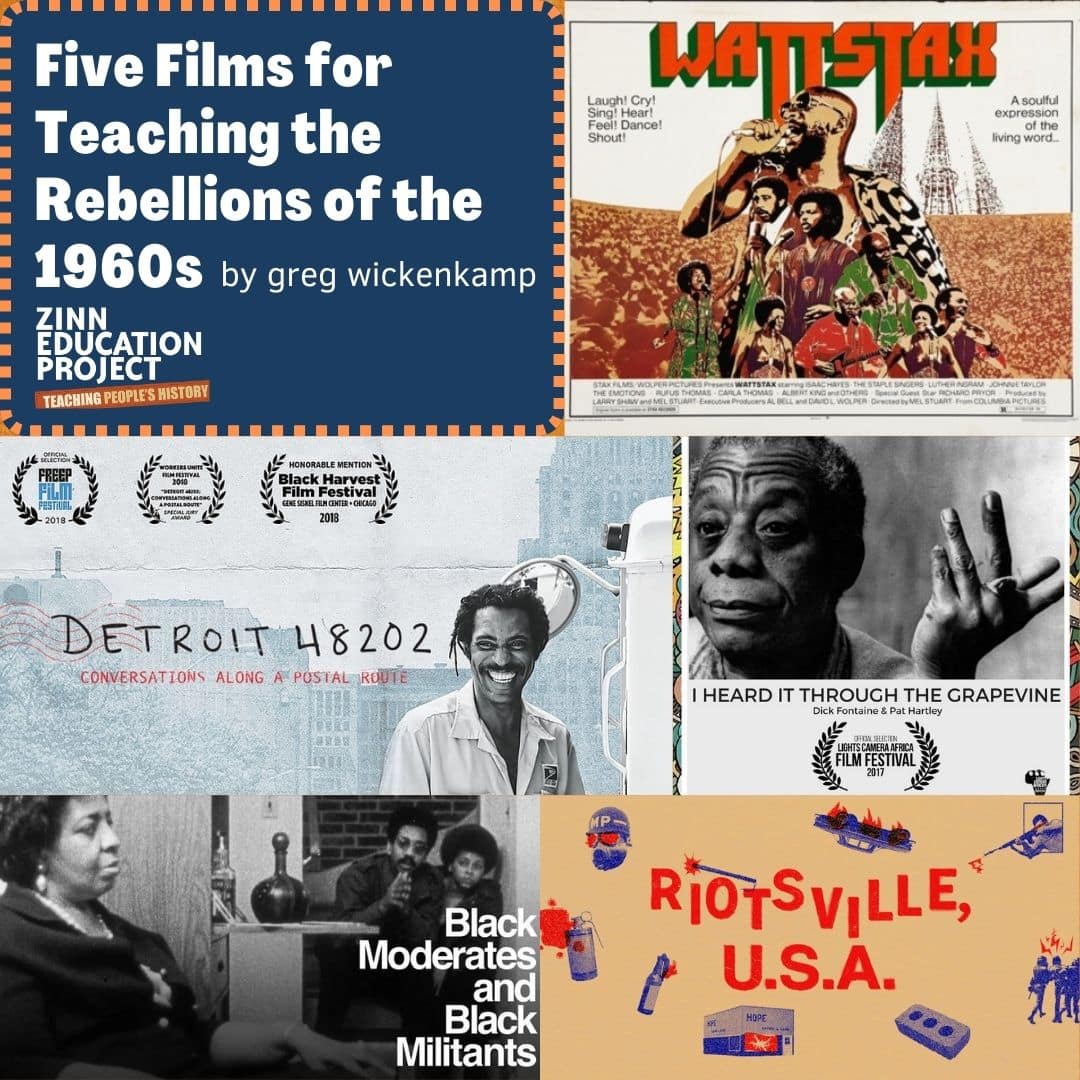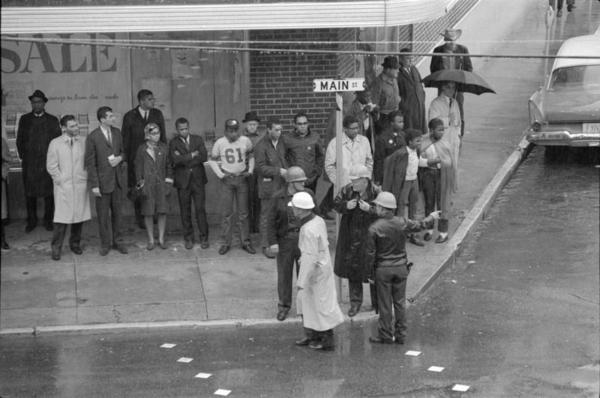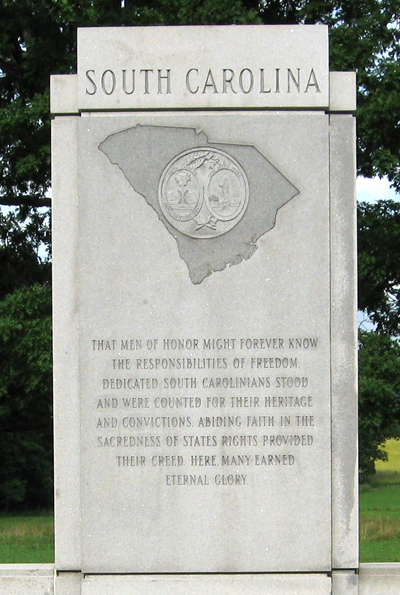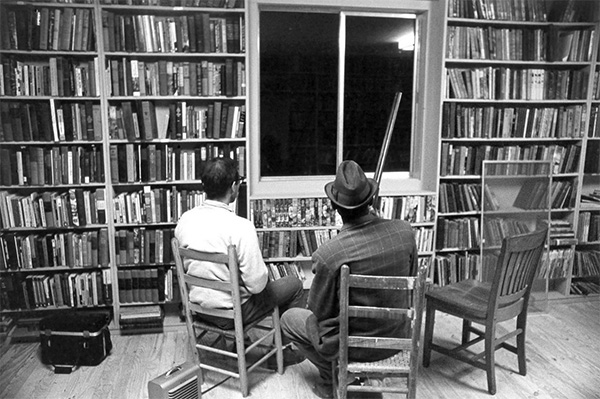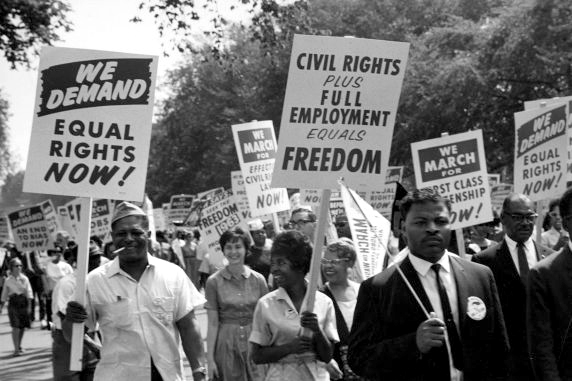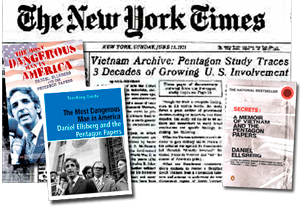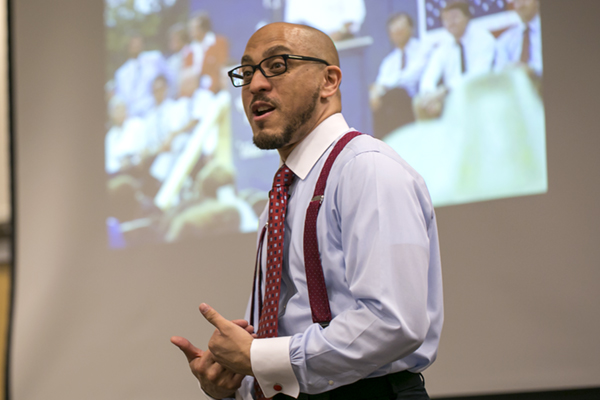Article. By William Katz. 2013.
An opportunity to highlight Congressman Thaddeus Stevens' fight for equality.
Continue reading
Background Reading. By Howard Zinn. 1994.
Interview conducted by Barbara Miner on a number of questions about the study of history.
Continue reading
Article. Howard Zinn interview by Barbara Miner. 1994. Rethinking Schools magazine.
I started studying history with one view in mind: to look for answers to the issues and problems I saw in the world about me. By the time I went to college I had worked in a shipyard, had been in the Air Force, had been in a war. I came to history asking questions about war and peace, about wealth and poverty, about racial division.
Continue reading
Article. By James W. Loewen.
Excerpt about President Woodrow Wilson from "Lies My Teacher Told Me" (The New Press).
Continue reading
The right-wing legislation restricting lessons on history and systemic racism also denies students climate literacy.
Continue reading
Article. By Laura Shelton. Rethinking Schools. 2022.
A 5th- and 6th-grade teacher asks her students to wrestle with what “identity” and “intersectionality” mean.
Continue reading
Article. By Mimi Eisen and Ursula Wolfe-Rocca. 2023.
A rationale for a new timeline of the climate crisis.
Continue reading
Article. By Anna McMaken-Marsh. Rethinking Schools. 2022.
A high school teacher navigates the tensions that arise in conversations with students about the Day of Silence, and how to bridge divides.
Continue reading
Article. Timeline by Bill Bigelow. 2023.
A timeline of the overthrow of democracy in Chile — the fall of Salvador Allende and the rise of Augusto Pinochet.
Continue reading
Article. By Ana Rosado, Gideon Cohn-Postar, and Mimi Eisen. 2022. 44 pages.
The report includes assessments of education standards in all 50 states and the District of Columbia, along with findings and recommendations for how to improve instruction on Reconstruction.
Continue reading
Article. By greg wickenkamp. 2024.
A description of the top five films for teaching about the uprisings of the 1960s, plus a handful of honorable mentions.
Continue reading
Article. By Wesley Hogan. 2024.
A collection of primary sources to illustrate the history of abortion care in the United States.
Continue reading
Article. By Howard Zinn. From Chapter 6 of You Can't Be Neutral on a Moving Train.
Zinn describes the Student Nonviolent Coordinating Committee (SNCC) voting rights campaign called Freedom Day in Hattiesburg, Miss.
Continue reading
Article. By James W. Loewen. July 2015 in the Washington Post.
A critique of textbook and mainstream media coverage of the Civil War.
Continue reading
Article from "Understanding and Teaching the Civil Rights Movement" edited by Hasan Kwame Jeffries.
A critical review of films on the Civil Rights Movement and institutionalized racism, with dozens of recommendations of films to watch and those to avoid.
Continue reading
Questions and selected activities to accompany A People’s History of the United States by Howard Zinn.
Continue reading

